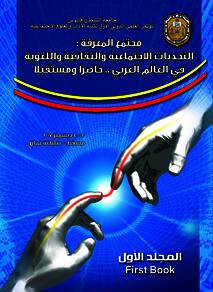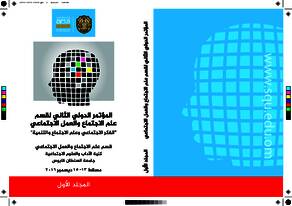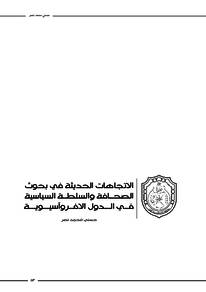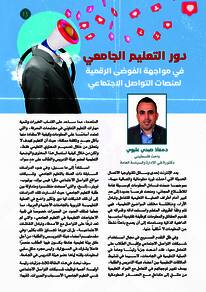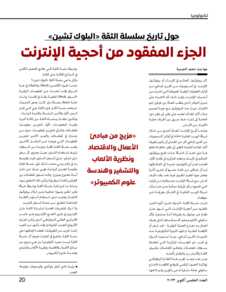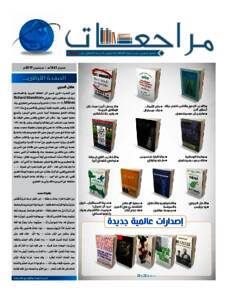Document
من الإنترنت إلى الشارع : دور وسائل الإعلام الاجتماعية في ثورة 25 يناير 2011 في مصر.
Publisher
جامعة السلطان قابوس. كلية الآداب والعلوم الاجتماعية
Gregorian
2015
Language
Arabic
English abstract
This paper examines the role of the online social networks, especially Facebook, during the Egyptian revolution in January 2011. Analysis of a sample of pages shows how these networks helped people exchange information before, during and after the 18 days revolution which ended the reign of former president - Hosni Mubarak. The study analyzes how online discussions and media coverage before the revolution enabled citizens to communicate with each other and share content online, and eventually move their revolutionary ideas from the virtual world to the streets of Egypt. Analysis shows that during the revolution, social media functioned as a political organizer, an alternative media, and a medium for citizen journalism. The study reveals that social media created an alternative public sphere for Egyptian activists, thus helping them communicate their ideas with the general public without restraints. In addition, social networks provided people with the opportunity and the freedom to discuss their country's situation at all levels. Success of the revolution shows the important role social media plays as a means of information sharing. The study concludes that using social media networks helped the Egyptian revolution and had significant impact on the democratic transition in Egypt.
Member of
ISSN
2312-1270
Resource URL
Arabic abstract
تحلل هذه الدراسة دور الشبكات الاجتماعية على الويب خصوصا شبكة فيسبوك خلال الثورة التي اندلعت في مصر في يناير كانون الثاني 2011 ، وذلك من خلال تحليل مضمون عينة من الصفحات. وتناقش الدراسة كيف مكنت هذه الشبكات الشباب المصري من تبادل المعلومات قبل الثورة وفي أثنائها وبعدها، تلك التي أنهت في ثمانية عشر يوما فقط حكم الرئيس السابق حسني مبارك الذي استمر ثلاثين عاما. وتحلل الدراسة أيضا المناقشات التي دارت قبل الثورة وأثنائها على صفحات شبكة فيسبوك، التي مكنت المواطنين من التفاعل معا ومشاركة المحتوى ونقل الاحتجاجات الشعبية من العالم الافتراضي إلى الشارع. وخلصت الدراسة إلى أنه خلال الثورة، عملت وسائل الإعلام الاجتماعية كمنظم سياسي، ووسيلة إعلام بديلة، وصحافة مواطن. وتؤكد الدراسة أن وسائل الإعلام الاجتماعية نجحت في أن تكون مجالا اتصاليا بديلا استخدمه الناشطون في الوصول إلى عامة الشعب، وتم من خلاله عرض مختلف وجهات النظر حول الثورة، وكانت وسيلة مهمة لتمكين المواطنين من مناقشة الأوضاع في البلاد. وخلصت الدراسة إلى أن نجاح الثورة في مصر أظهر أهمية وسائل الإعلام الاجتماعية كشكل من أشكال الاتصال الأفقي في تبادل المعلومات، وأن تجربة استخدام وسائل الإعلام الاجتماعية دعم قيام ثورة سياسية كان لها انعكاسات مهمة على عملية التحول الديمقراطي في مصر.
Category
Journal articles


